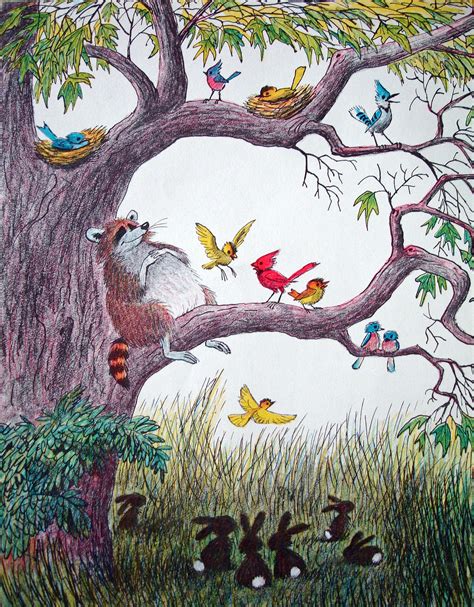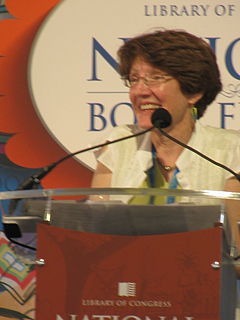A Quote by Daniel Pennac
Once a book falls into our possession, it is ours, the same way children lay their claim: 'That's my book.' As if it were organically part of them. That must be why we have so much trouble returning borrowed books. It's not exactly theft (of course not, we're not thieves, what are you implying?); it's simply a slippage in ownership or, better still, a transfer of substance. That which belonged to someone else becomes mine when I look at it. And if I like what I read, naturally I'll have difficulty giving it back.
Quote Topics
Back
Becomes
Belonged
Better
Book
Books
Borrowed
Children
Claim
Course
Difficulty
Else
Exactly
Falls
Giving
Implying
Lay
Like
Look
Mine
Much
Must
Naturally
Once
Organically
Our
Ours
Ownership
Part
Possession
Read
Returning
Same
Simply
Someone
Still
Substance
Theft
Them
Thieves
Transfer
Trouble
Way
Were
Which
Why
Related Quotes
I am an author-illustrator of children's books - and yet - I must confess I don't do the books for the kids. When I'm working on a book I'm somewhere else - at the circus - or a rustic old farm - or deep in a forest - with no thought of who might read the book or what age group it would appeal to. I write them so I can illustrate them.
If the book we are reading does not wake us, as with a fist hammering on our skull, why then do we read? So that it shall make us happy? Good God, we should also be happy if we had no books, and such books as make us happy we could, if need be, write ourselves. But what we must have are those books which come upon us like ill fortune, and distress us deeply, like the death of one we love better than ourselves; like suicide. A book must be an ice-axe to break the sea frozen inside us.
I feel lucky that I read so many books as a kid because I know that no matter how much I appreciate a book now, and I can love a book very much, it's never going to be that childhood passion for a book. There's some element, something special about the way they're reading books and experiencing books that's finite.
Reading, because we control it, is adaptable to our needs and rhythms. We are free to indulge our subjective associative impulse; the term I coin for this is deep reading: the slow and meditative possession of a book. We don't just read the words, we dream our lives in their vicinity. The printed page becomes a kind of wrought-iron fence we crawl through, returning, once we have wandered, to the very place we started.
A truly good book attracts very little favor to itself. It is so true that it teaches me better than to read it. I must soon lay it down and commence living on its hint. When I read an indifferent book, it seems the best thing I can do, but the inspiring volume hardly leaves me leisure to finish its latter pages. It is slipping out of my fingers while I read. It creates no atmosphere in which it may be perused, but one in which its teachings may be practiced. It confers on me such wealth that I lay it down with regret. What I began by reading I must finish by acting.
All of us can think of a book... that we hope none of our children or any other children have taken off the shelf. But if I have the right to remove that book from the shelf - that work I abhor - then you also have exactly the same right and so does everyone else. And then we have no books left on the shelf for any of us.
If we are always reading aloud something that is more difficult than children can read themselves then when they come to that book later, or books like that, they will be able to read them - which is why even a fifth grade teacher, even a tenth grade teacher, should still be reading to children aloud. There is always something that is too intractable for kids to read on their own.
Sometimes I read the same books over and over and over. What's great about books is that the stuff inside doesn't change. People say you can't judge a book by its cover but that's not true because it says right on the cover what's inside. And no matter how many times you read that book the words and pictures don't change. You can open and close books a million times and they stay the same. They look the same. They say the same words. The charts and pictures are the same colors. Books are not like people. Books are safe.






































